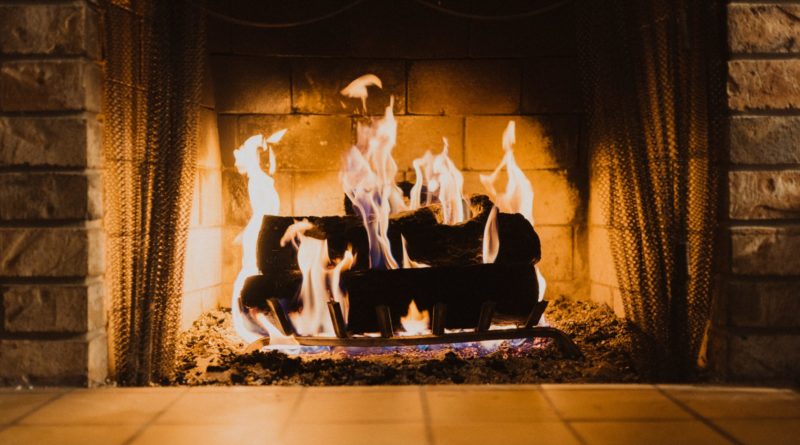What’s the Best Heating System for My Home?
With the Christmas holidays just around the corner, it’s time once again to crank up the home heating to keep you and your loved ones cosy throughout the festivities. Ensuring you have the best heating system for your home won’t just help you stay toasty, it’ll also help make sure you’re getting the best value for money on your energy bills.
While most UK homes are connected to the gas grid and stay warm using a gas central heating system, there are a number of other heating options available – some far more energy-efficient than traditional central heating.
So which is the best heating system for your home? Let’s take a look at some of the most common forms of home heating and weigh up the pros and cons of each so you can make an informed choice.
Gas central heating
The most common form of home heating in England, Scotland and Wales. For homes connected to the gas grid, this is usually the cheapest option for keeping cosy during the colder months, but is it the best heating option?
Gas central heating uses what is known as a ‘wet system’, meaning that the boiler burns fuel to heat water. This water is then pumped to provide central heating through your radiators and hot warm water through your taps.
If you’re not ready to give up on your gas central heating just yet, you’ll be pleased to know that gas boiler technology has come on a lot in recent years – more recent condensing boiler models can reach up to 90% efficiency. Not only is this better for the environment, but you could save hundreds of pounds a year on heating bills.
Gas Central Heating: the Pros and Cons
| ADVANTAGES | DISADVANTAGES |
| Gas central heating is the best heating option for many as it’s a convenient and cost-effective option. | Gas is a fossil fuel that emits carbon dioxide when burned. |
| Most UK homes are already connected to the gas grid. | Installing gas central heating can be costly if you’re not already connected to the gas grid. |
| Modern condensing gas boilers are very energy efficient. | A gas heated water tank can easily lose heat if not insulated properly. |
| Home heating and water temperature can easily be controlled using a thermostat. | Gas boilers require servicing once a year year to keep them running efficiently. |
Electric central heating
If your home isn’t connected to the gas grid, your next best heating option could be electricity. This can be more convenient for than getting hooked up to mains gas, as most homes in the UK are already connected to an electricity supply.
Electric central heating doesn’t come cheap, however. To get around the cost issue, many homes that rely on electricity for their central heating make use of night storage heaters and ‘differential’ electricity tariffs, such as Economy 7 or Economy 10. These tariffs offer cheaper rates throughout the night and off-peak hours, during which the heaters use electricity to heat up ceramic bricks, which in turn store and slowly release heat around the clock.
Electric Central Heating: the Pros and Cons
| ADVANTAGES | DISADVANTAGES |
| Far cheaper to install electricity night storage heaters, compared to gas central heating. | Electricity is much more expensive per unit of energy than gas. |
| The vast majority of UK homes already have a working electricity connection. It’s the best heating option for homes that only have electricity. | Economy 7 and Economy 10 tariffs usually offer much higher rates during peak hours. |
| Electric storage heaters are cheap to repair and don’t require servicing every year. | Homes with electricity central heating could be left in the cold if there is a power cut. |
Oil central heating
With 1.1 million homes in the UK relying on oil for their central heating, this is also the most common heating system in Northern Ireland.
As with gas central heating, homes powered by oil also use a wet system, with heated water pumped through radiators and taps. The major difference between gas and oil central heating is that the oil is stored outside the home in a tank which is usually bought or rented from an energy supplier.
Oil Central Heating: the Pros and Cons
| ADVANTAGES | DISADVANTAGES |
| Homes with oil central heating systems are able to schedule oil delivery and stock up when oil prices are at their lowest – typically in the summer. | Oil prices can fluctuate, with the cost determined by weather, global demand and occasional political unrest. |
| Oil is a highly efficient fuel which gives a good return on each unit of energy. | Oil is a fossil fuel that produces carbon dioxide when burned. |
| Oil central heating is often the cheapest way to heat homes in rural areas where there is no gas supply. | Fossil fuel heating with high carbon emissions will likely eventually be phased out through the government’s Clean Growth Strategy. |
Heat pumps
An alternative method of heating heat your home is through an air source heat pump or ground source heat pump.
Rather than burning fuel to heat up your water and radiators, a heat pump is a low-carbon heating system which uses electricity to take naturally occurring warm air or heat in the ground and convert it to a higher temperature.
While a heat pump is still not completely zero-carbon, it is an energy-efficient alternative to traditional heating methods. Installing a heat pump could also be a cost-effective way to replace electric and oil central heating for many homes.
Heat Pumps: the Pros and Cons
| ADVANTAGES | DISADVANTAGES |
| Financial aid for heat pump installation available through schemes such as the Renewable Heat Incentive (RHI), Energy Company Obligation (ECO) and the Green Homes Grant. | Installing a heat pump for your home heating doesn’t come cheap – it could cost between £6,000 and £25,000. |
| Heat pumps are far more energy-efficient than traditional boiler systems, with lower running costs and less maintenance required. | Installation of both air source heat pumps and ground source heat pumps can be disruptive and require special planning permissions in Wales and Northern Ireland. |
| Possibility to utilise a differential tariff such as Economy 7 or Economy 10 and benefit from the lower cost of electricity to power a heat pump at off-peak times. | Although considered a low-carbon alternative, heat pumps are still not completely carbon neutral unless using electricity generated from 100% renewable sources. |
Biomass boilers
Biomass heating systems provide heat and hot water by burning organic material such as wood pellets, logs and wood chips in a wood-burning stove with a back boiler. This is another good option for homes that are not connected to mains gas.
While wood-burning stoves do produce carbon dioxide, biomass is considered a low carbon energy source as it releases roughly the same amount that it absorbs when growing. In theory, if trees are repeatedly grown and burned, the whole cycle should create net-zero emissions.
Biomass Boilers: the Pros and Cons
| ADVANTAGES | DISADVANTAGES |
| Biomass boilers can be a carbon-neutral option for heating your home – provided the biomass material is sustainably sourced. | Biomass boilers are significantly larger than gas boilers and can also require a lot of space for fuel storage. |
| Financial support for biomass boiler installation is available through the Renewable Heat Incentive (RHI). | Biomass boiler installation can be quite expensive and could set you back anything from £5,000 up to £12,000. |
| Biomass material is far cheaper than electricity and close to the same price as gas, so can be a good replacement for either. | Biomass is a lower carbon alternative to gas or electricity central heating, but it does still produce carbon dioxide. |
Solar thermal energy
Solar heating is one of the best heating options when it comes to renewable energy sources. Solar thermal panels heat water using the power of sunlight. Solar panels are usually mounted to a roof to absorb solar radiation throughout the day and heat up a liquid inside the panels. This heat is then transported to a water tank.
Solar thermal panels can be used in conjunction with a regular boiler and hot water cylinder. While cheaper to install than many other renewable energy sources, solar thermal panels will only heat water, so you’ll need to find another way to warm up your home.
Solar Thermal Energy: the Pros and Cons
| ADVANTAGES | DISADVANTAGES |
| Financial aid for installing solar thermal panels is available through the Green Homes Grant. | Solar may not be the best heating option for areas with little sunlight. Solar can be an unreliable source of energy, particularly in the winter. |
| Solar thermal panels can typically provide up to half of your home’s annual hot water needs. | Solar thermal panels only heat water – you’ll need to find another source for your home heating. |
| Good for the environment – solar thermal panels could help you save up to 600 kg of carbon dioxide emissions in a year. | Solar thermal panels are still costly to install compared to traditional water heating systems. |
Did you discover what the best heating option is for you? Check out more stories and others like this.



